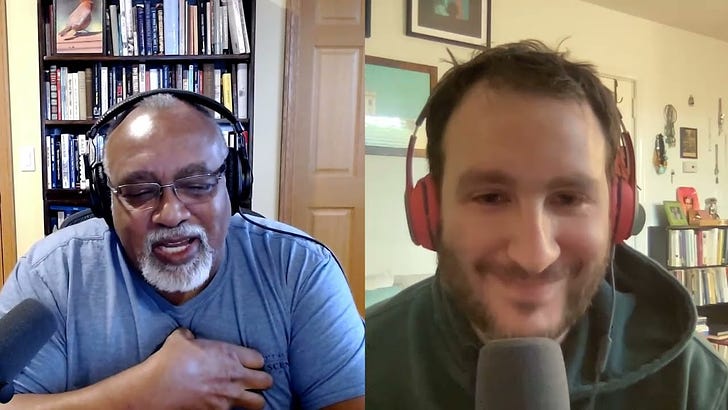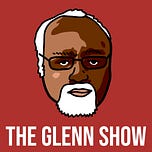With the war in Ukraine escalating, I thought it would be a good idea to bring on a guest with some expertise in international relations. So I called on Daniel Bessner, an intellectual historian, associate professor at University of Washington’s Henry M. Jackson School of International Studies, and a co-host of the American Prestige podcast. Daniel is a man of the left, so we spend a lot of time here arguing, and we have a great time doing it.
Note: We recorded on February 22, 2022. Between then and now, the situation in Ukraine has changed quite a bit. In order to avoid confusion, we have edited out a portion of the conversation that is no longer up-to-date.
Daniel and I begin by discussing what Putin’s invasion of Ukraine might tell us about the US’s standing in the world. Daniel argues that Putin’s willingness to ignore the US’s warnings reflects the decline of America’s global hegemony. He compares the present situation to America’s geopolitical position in the wake of World War II, arguing that the US imputed unrealistic hegemonic ambitions to the Soviet Union in order to justify the Cold War. He worries that the lesson many nations will draw from Ukraine is that the best way to forestall aggression from a stronger state is to acquire nuclear weapons. Unfortunately, this strategy makes a lot of sense to me. We then take a hard turn away from war to talk about Whoopi Goldberg. Daniel and I agree that the outrage over her remarks about the Holocaust is completely overblown. But he sees in this outrage the sign of a frustrated populace with no other way to express its political will. I’m skeptical of the idea we should want a return to mass politics, though. We shouldn’t throw the fate of our institutions to the political winds. We then debate the role of private industry in administering services to the public. We agree that our public schools are in bad shape, but Daniel thinks that market logic is at the root of the problem, whereas I think the market can help offer solutions. The question of meritocracy emerges, and Daniel argues that real meritocracy is impossible within a highly unequal society. No doubt that’s a problem, but I think abandoning meritocratic principles would be a huge mistake. And finally, we get into a debate over the uses (and possible abuses) of game theory.
I truly enjoyed this good-natured sparring match with Daniel, and I hope you do, too!
This post is free and available to the public. To receive early access to TGS episodes, an ad-free podcast feed, Q&As, and other exclusive content and benefits, click below.
0:00 Daniel: Putin’s actions in Ukraine demonstrate the decline of American global hegemony
7:02 Did the Soviet Union have the same expansionist ambitions as the US?
16:01 How the war in Ukraine could increase nuclear proliferation
23:46 Daniel: It’s absurd that people got so upset about Whoopi Goldberg’s Holocaust comment
27:27 Does the US have “mass politics” anymore? If not, is that a bad thing?
34:35 When does it pay to privatize?
38:55 What’s so bad about utopianism?
44:18 Is true meritocracy possible within a highly unequal society?
58:04 The uses (and possible abuses) of game theory
Links and Readings
Glenn’s Intellectual Origins, a series of interviews with Daniel
Daniel’s podcast, American Prestige
Daniel’s most recent appearance on Chapo Trap House
Stephen Wertheim’s book, Tomorrow, the World: The Birth of U.S. World Supremacy
Paul Chamberlin’s book, The Cold War’s Killing Fields: Rethinking the Long Peace
Derek Masters and Katharine Way’s book, One World or None: A Report to the Public on the Full Meaning of the Atomic Bomb
Daniel’s essay, “The End of Mass Politics”
Walter Lippmann’s book, Public Opinion
Walter Lippmann’s book, The Phantom Public
Glenn’s book, The Anatomy of Racial Inequality
Daniel Markovitz’s book, The Meritocracy Trap: How America's Foundational Myth Feeds Inequality, Dismantles the Middle Class, and Devours the Elite
Kenneth Arrow’s book, Social Choice and Individual Values
Paul Erickson’s, The World the Game Theorists Made
S.M. Amadae’s book, Rationalizing Capitalist Democracy: The Cold War Origins of Rational Choice Liberalism
Robert Fogel and Stanley Engerman’s book, Time on the Cross: The Economics of American Slavery















Share this post